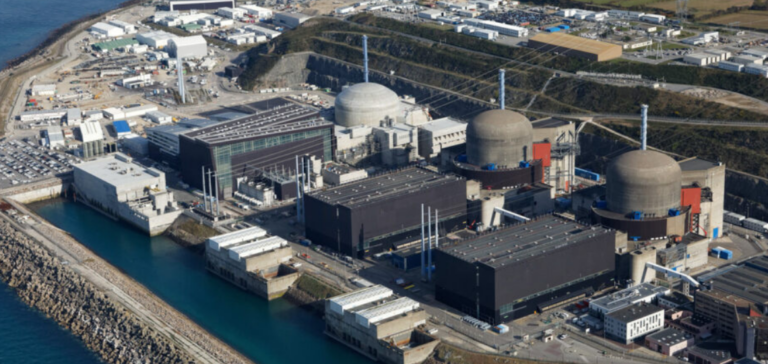EDF CEO Luc Rémont recently discussed the challenges of commissioning the first reactor in the new nuclear fleet planned for 2035. Indeed, in a radio interview, he stressed the “very demanding” nature of this objective, linked to the necessary increase in output from the existing nuclear fleet. France, with a current nuclear fleet of 43GW out of a total capacity of 61.4GW, is preparing to face the winter with confidence, while remaining vigilant in its efforts to reduce energy consumption.
The Crucial Role of the Flamanville EPR in EDF’s Strategy
EDF’s ambitious program includes the construction of six new EPR2 reactors. In addition, the first Penly plant is scheduled for commissioning between 2035 and 2037. The project is aimed at boosting the country’s nuclear generation capacity, an increased necessity after nuclear production fell to a 30-year low in 2022, at just 279 terawatt-hours (TWh). This drop is mainly due to the corrosion crisis that affected the nuclear fleet.
EDF’s Financial Turnaround: Between Ambitions and Realities
At the same time, the Group plans to load fuel for the Flamanville EPR in the first quarter of 2024, with commissioning scheduled for mid-2024. The project encountered significant delays and budget overruns, with the final bill estimated at 13.2 billion euros, four times the initial budget of 3.3 billion. Despite these delays, the goal is to produce 400 TWh by 2030, in order to turn around the group’s financial situation, which is currently weakened by a debt of 65 billion euros.
New Framework for Electricity Price Regulation in France
Luc Rémont also discussed the new agreement with the French government on the framework for regulating electricity prices in France. Faced with concerns about potential new rate hikes, he assured us that this model would offer
“much stronger protection for all citizens”.
This statement is part of EDF’s wider efforts to stabilize and strengthen its role in the French energy sector.
EDF’s strategy for the new nuclear fleet, centered on the launch of the first EPR2 reactor by 2035, is ambitious but crucial for French energy production. Despite past challenges and delays, the Group remains confident in its ability to meet these challenges and deliver stable, sustainable energy for the future.






















